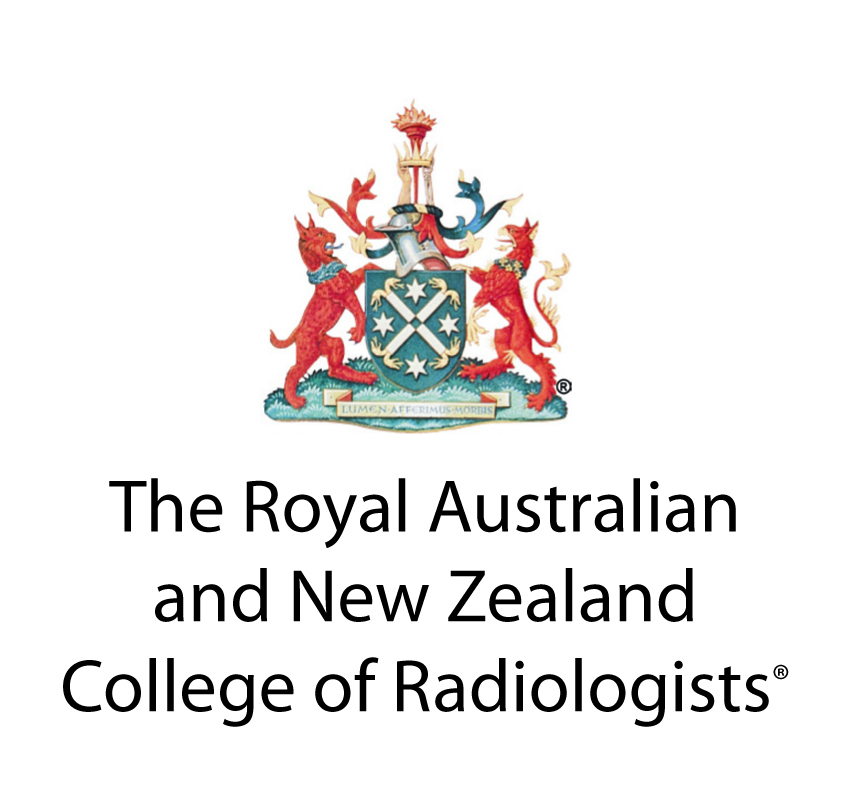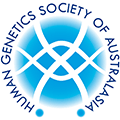Recommendations
Tests, treatments, and procedures for healthcare providers and consumers to question
Australia's peak health professional colleges, societies and associations have developed lists of recommendations of the tests, treatments, and procedures that healthcare providers and consumers should question.
Each recommendation is based on the latest available evidence. Importantly, they are not prescriptive but are intended as guidance to start a conversation about what is appropriate and necessary.
As each situation is unique, healthcare providers and consumers should use the recommendations to collaboratively formulate an appropriate healthcare plan together.
Neurology
Faculty of Pain Medicine, ANZCA
Visit page
Recommendation 1-5
The Faculty of Pain Medicine (FPM), ANZCA established a working group to develop a preliminary list of pain medicine related practices that were identified, using current clinical evidence, as having possible limited benefit, no benefit or which may potentially cause harm to patients. An online survey tool was used to survey all FPM fellows and trainees inviting them to rank these recommendations and to provide any comment related to them. This engagement facilitated consensus and informed the Fellows and trainees about FPM’s involvement with the Choosing Wisely campaign.
FPM's final list of 5 Choosing Wisely recommendations reflects those that were the most broadly supported by the clinicians and which were considered to be the most relevant to community practice.
Recommendation 6
FPM Board directed that a poll of the fellowship be conducted to assess support for a sixth Choosing Wisely recommendation regarding the role of medicinal cannabis in chronic non-cancer pain treatment. The survey question was very similar to the final wording of the recommendation, and was supported by 79% of the fellows who responded (more than 25% of the active fellowship).
The final draft wording of the recommendation, explanation and list of key references was then approved by the Board and sent to Choosing Wisely for consideration by the Representative Panel. Feedback obtained from that consultation was then collated and discussed at the following Board meeting before some minor amendments were made to clarify the explanation section of the recommendation.
Recommendation 7
The ANZCA Safety and Quality Committee proposed that the college submit a statement to Choosing Wisely Australia as part of analgesic stewardship.
The committee agreed that the existing document development group (DDG) for ANZCA and FPM professional document PS41(G) Position statement on acute pain management would be well-placed to develop the Choosing Wisely recommendation. It was also agreed that an expert group should be formed comprising members with expertise in obstetric anaesthesia, paediatric anaesthesia, and paediatric pain medicine, to provide input to the Choosing Wisely recommendation.
The draft document was circulated for consultation in February 2022 with the following stakeholders: ANZCA national/regional committees, NZ national committee, FPM committees, Australian Society of Anaesthetists (ASA), New Zealand Society of Anaesthetists (NZSA), ANZCA Special Interest Groups (SIG) including Obstetric SIG and Acute Pain SIG, and Society for Paediatric Anaesthesia in New Zealand and Australia (SPANZA). The one-month consultation period finished in March 2022. After consideration of the feedback received during this period, the DDG made further amendments to the CW recommendation. The ANZCA Safety and Quality Committee approved the post consultation version and sent to Choosing Wisely for consideration by the Representative Panel. Feedback obtained from that consultation was then collated and discussed at the Board meeting before some minor amendments were made to clarify the explanation section of the recommendation.
The Society of Hospital Pharmacists of Australia
Visit page
A working party was formed and they sought suggestions from SHPA’s Committees of Specialty Practice, Reference Groups, State and Territory branches and Federal Council. More than 40 proposed statements were considered by the working party. A shortlist of 10 statements was identified for consideration by the SHPA’s membership through an online survey. All members were invited to comment on each proposed statement, specifically: whether it related to the practice of pharmacy, related to medicines that are frequently used, and if a significant cost. Members were also invited to rate the statements in order of preference. The survey results were used by the working party to identify the final six statements which were presented to SHPA’s Federal Council who ratified the choice of the five final statements.
The Royal Australian and New Zealand College of Radiologists
Visit page
Clinical radiology recommendations 1-6 (April 2015)
A team of five Lead Radiologists were nominated to guide RANZCR's Choosing Wisely contribution. These Lead Radiologists analysed previous work completed by RANZCR, in particular a series of Education Modules for Appropriate Imaging Referrals.
These modules had been developed from an extensive evidence base and with multiple stakeholder input. Using the evidence from the Education Modules, the Lead Radiologists developed a draft recommendations list, which was then further developed and endorsed by RANZCR's Quality and Safety Committee, before being circulated to the RANZCR membership for consultation with a request for alternative recommendations. Member feedback was reviewed by the Lead Radiologists prior to ratification of the final recommendations by the Faculty of Clinical Radiology Council. The final six items selected were those that were felt to meet the goals of Choosing Wisely, i.e. those which are frequently requested or which might expose patients to unnecessary radiation.
Due to the fundamental role of diagnostic imaging in supporting diagnosis across the healthcare system, RANZCR worked closely with other Colleges throughout the project via the Advisory Panel. Following identification of two common recommendations with the Australasian College for Emergency Medicine, it was agreed by both Colleges to present these items jointly.
Radiation oncology recommendations 7-10 (September 2021)
Recommendations relating to radiation oncology from the Choosing Wisely and Choosing Wisely Canada were circulated around the Faculty of Radiation Oncology Council to determine which recommendations were applicable to the Australian and New Zealand context. The selected recommendations were then put to the Quality Improvement and Economics and Workforce Committees, with each being asked to rank the recommendations. The five highest ranked recommendations were then put to the radiation oncology membership for consultation prior to being formally approved by the Faculty of Radiation Oncology Council. Recommendations 7-10 are adapted from the American Society for Radiation Oncology (ASTRO) 2013 and 2014 lists. Recommendation 11 is adapted from Choosing Wisely Canada’s Oncology list. Each organisation was approached for—and subsequently granted—approval to adapt these recommendations as part of the Choosing Wisely Australia campaign.
This initial list has now been reviewed with recommendations 7, 8 & 10 remaining unchanged, recommendation 9 has been updated based on the advice of the Faculty of Radiation Oncology Quality Improvement Committee and Recommendation 11 has been replaced based on the feedback of the Quality Improvement Committee and the Policy and Advocacy team.
The Australian Physiotherapy Association
Visit page
The APA sought nominations from fellows and associates of the Australian College of Physiotherapy, directors of the Physiotherapy Evidence Database, clinical specialist APA members and academic physiotherapists to form an expert panel. The APA invited all members to submit evidence about interventions related to physiotherapy that should be questioned. From members’ submissions and the expert group’s research, the expert group formed a shortlist of 8 recommendations. The expert group then considered the shortlist in terms of the extent of the health problem, usage of the test or intervention, and the evidence that the test or intervention is inappropriate. From this analysis, the expert panel selected five recommendations to put to APA members. In a second round of consultation, the APA received nearly 2500 responses, and almost 900 comments. The expert panel then considered feedback and refined the recommendations. This resulted in the 6 recommendations put forward below, for which there was overwhelming majority support.
The Australia and New Zealand Child Neurology Society
Visit page
- Do not routinely perform electroencephalographs (EEGs) for children presenting with syncope (fainting).
- Do not routinely perform computed tomography (CT) scanning of children presenting with new onset seizures.
- Do not routinely undertake repeat blood level monitoring of antiepileptic drug (AED) treatments.
- Do not routinely undertake neuroimaging for new onset primary headache without first examining for neurological abnormality.
- Do not routinely perform electroencephalographs (EEGs) for children presenting with febrile seizures.
Following deliberations, the ANZCNS Board determined to investigate the evidence for nine priority recommendations regarding low-value clinical practices in paediatric neurology. An evidence review was developed for these recommendations and served as the basis for an online survey sent to all ANZCNS members asking respondents if they agreed, disagreed or were unsure if these recommendations were evidence based, undertaken in significant numbers, and important in terms of reducing patient harm and unnecessary healthcare expenditure. Based on survey responses, each of the nine was assigned a score and ranked accordingly. Based on this information and a final evidence review, these top 5 recommendations were chosen.
Human Genetics Society of Australasia
Visit page
A preliminary list was developed by the Lead Fellow which was then distributed to all the clinical geneticists in Australia who are all members of the Australasian Association of Clinical Geneticists (AACG), a special interest group of the HGSA. Following feedback the topic was revisited at a meeting of this group during the annual scientific conference of the HGSA, after which the list was finalised.
Australian and New Zealand Association of Neurologists
Visit page
- Don’t use opioids for the treatment of migraine, except in rare circumstances.
- Don’t perform epidural steroid injections to treat patients with low back pain who do not have radicular symptoms in the legs originating from the nerve roots.
- Don’t perform imaging of the brain for non-acute primary headache disorders.
The ANZAN Council considered 12 clinical practices in neurology which may be overused, inappropriate or of limited effectiveness in a given clinical context. After choosing the top 5 items to prioritise, these were passed on to the appropriate subspecialty committees within ANZAN for comment and additional suggestions. The final list of the top 5 items chosen was compiled following a review of the evidence and the formulation of suitable recommendations and endorsed by the Council on 7th January 2016.
Australasian College for Emergency Medicine
Visit page
A Choosing Wisely Working Group of 9 emergency physicians identified an initial list of 10 potential items. All ACEM members were able to provide feedback on these items and suggest other issues for consideration. This feedback informed Working Group refinement of the initial list into 8 recommendations. Evidence reviews were then completed for each recommendation. These evidence reviews, frequency of use in ED, risks/benefit to patient and cost were used as criteria for Working Group member voting in order to determine the final 6 recommendations. These recommendations have been endorsed by ACEM's Council of Advocacy, Practice and Partnerships.
Following identification of two common recommendations with the Royal Australian and New Zealand College of Radiologists, it was agreed by both Colleges to jointly present these items.